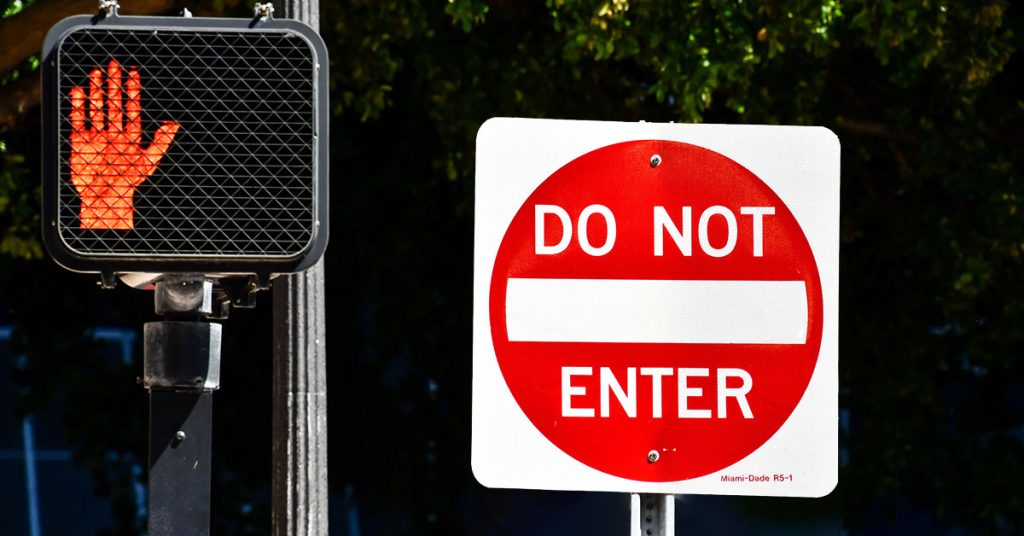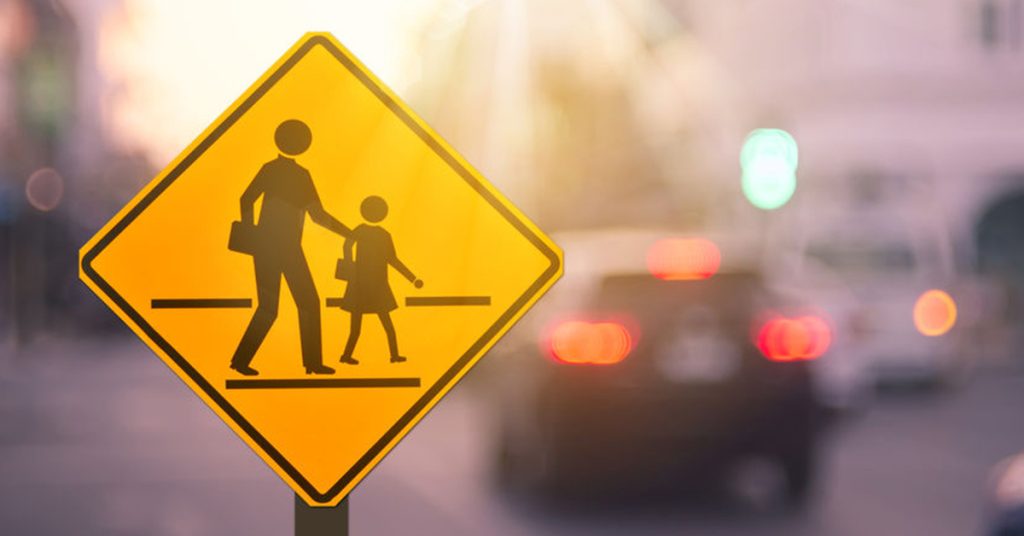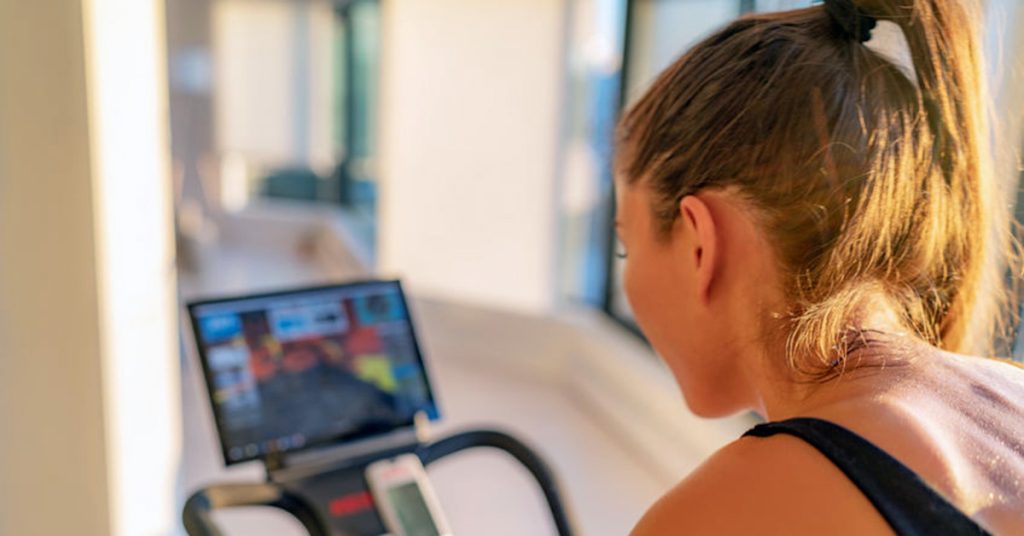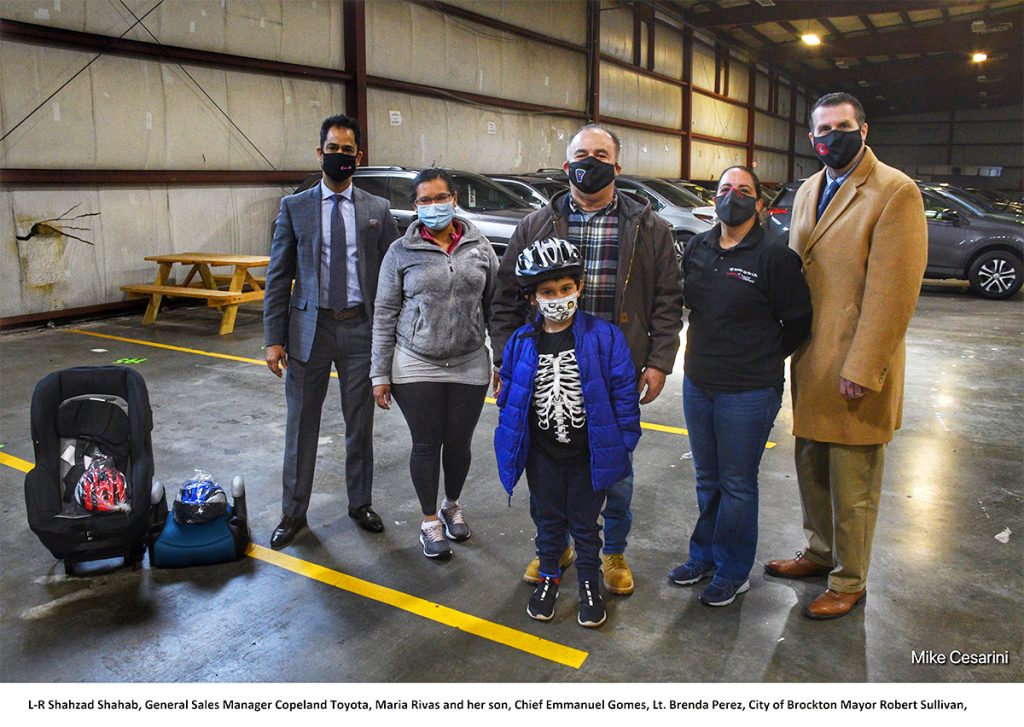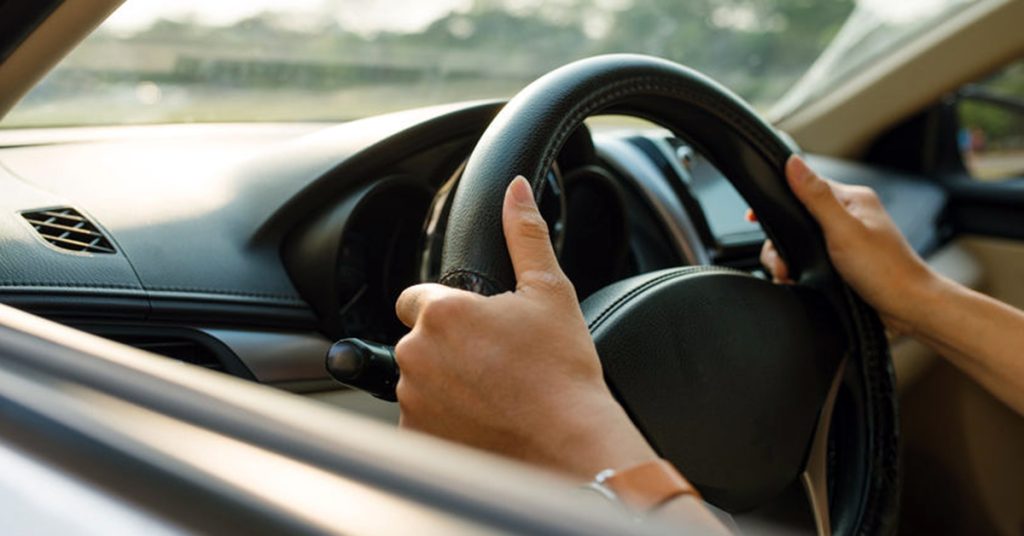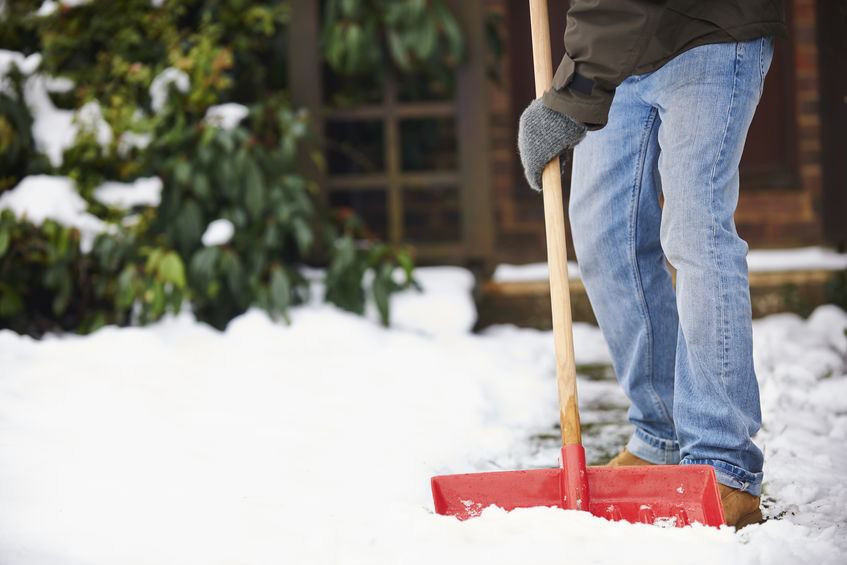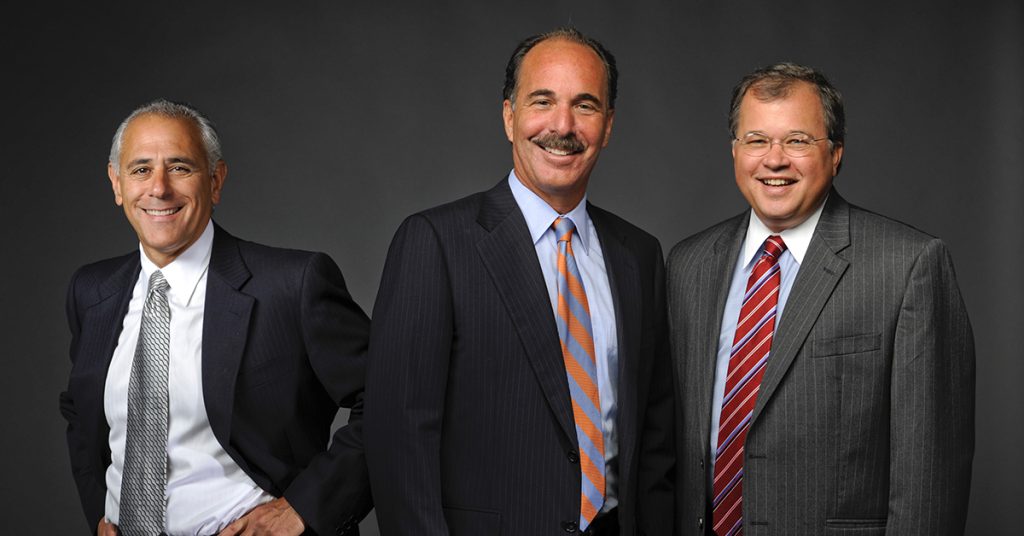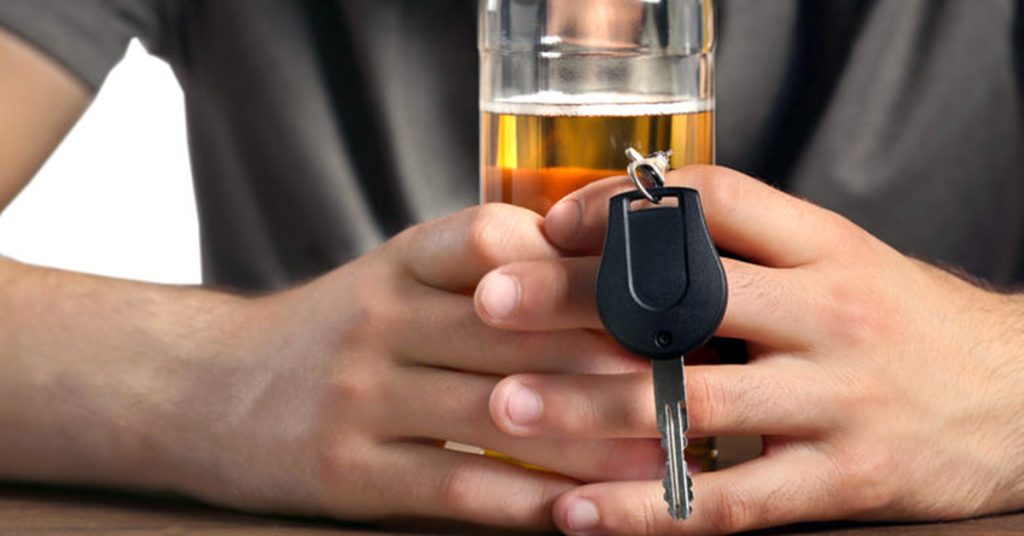Negligence
Massachusetts Observes Motorcycle Safety Awareness Month With Caution As Fatal Crashes Rise

May is Motorcycle Safety Awareness Month. In Massachusetts, the message is critical as motorcycle fatalities are rising.
May is Motorcycle Safety Awareness Month and Massachusetts has to observe with more caution this year.
The number of fatal motorcycle crashes rose across the state last year. So did the number of fatal motor vehicle accidents, even as traffic volumes fell statewide with COVID-19. State officials say drivers were speeding down open roads and when accidents happened, they were more likely to be fatal.
Statewide, the number of motor vehicle fatalities increased more than 2 percent, from 336 deaths in 2019 to 345 deaths in 2020, according to MassDOT Crash Data as of May 10, 2021. While there were fewer pedestrian fatalities, the state saw a notable increase in both motorcycle and bike accident fatalities. Motorcycle fatalities increased 20 percent, from 48 fatalities in 2019 (including 46 motorcycle operators and 2 passengers) to 58 motorcycle fatalities last year (55 motorcyclists and 3 passengers). MassDOT also reported 10 fatal bicycle crashes last year, a 100 percent increase over 2019.
Because drivers traveled fewer miles last year, the traffic fatality rate climbed much more than the actual numbers across the country. At Breakstone, White & Gluck, we encourage drivers to refocus and work to travel safely near motorcyclists. We share these safety tips from the National Highway Traffic Safety Administration (NHTSA):
Motorcycle Safety Tips for Massachusetts Drivers
Motorcyclists Have the Same Rights. Drivers must share the road with motorcyclists. Motorcyclists have the right to travel in the traffic lane and even pass your vehicle, when it is safe to do so. They also have to obey the same traffic signs and signals. You can reduce the risk of causing a motorcycle accident by giving riders extra room and slowing down on your approach.
Recognize a Motorcycle’s Size. Appreciate the difference between a motorcycle and a motor vehicle. Motorcycles may weigh several hundred pounds. An SUV may weigh in at 5,000 to 6,000 pounds. Commercial vehicles carry many times this.
Use Your Mirrors and Look for Motorcyclists. Use your mirrors when you drive. Assume you will be sharing the road with motorcyclists, as well as cyclists and pedestrians.
Use Your Turn Signals. Activate your turn signal early enough so motorcyclists know you intend to turn.
Never Trust Motorcycle Blinkers. On the other hand, never trust a motorcyclist’s blinkers. Motorcycles may not have self-canceling turn signals. If a motorcyclist forgets to turn their signal off, it may continue blinking. When you approach an intersection and come up behind a motorcyclist, wait until you are certain of their plans to avoid causing a motorcycle turn collision.
Commit Not to Pick Up Your Cell Phone. By committing to this, you are in a better position to safely respond to motorcyclists and other traffic.
Safety Tips for Massachusetts Motorcyclists
If you are a motorcyclist, May is a good time to check in on safety fundamentals.
Check Your Helmet. The best way to protect yourself is to wear a motorcycle helmet. The NHTSA offers tips for choosing a motorcycle helmet.
Review Your Auto Insurance. Take a moment to review your auto insurance policy. Another driver may be responsible for your injuries. But the reality is many drivers operate illegally without auto insurance or only purchase the state’s minimum coverage requirements. It is important for you to consider this as you purchase auto insurance. Ask your auto insurance agent for help and read our article on optional auto insurance coverages for Massachusetts motorcyclists.
Sign Up for Motorcycle Training. The Registry of Motor Vehicles offers the Massachusetts Rider Education Program at motorcycle schools across the state. Training classes are designed for all skill levels. At training classes, you have the opportunity to learn and sharpen your skills. You may also qualify for a discount on your auto insurance, savings you can use to buy more coverage.
What to Do If You Are Injured in A Motorcycle Crash
When a driver hits a motorcyclist, victims usually suffer serious and life-threatening injuries. At Breakstone, White & Gluck, we understand a motorcycle crash is devastating and emotional. The motorcyclist, along with their family members, needs guidance from an experienced motorcycle accident lawyer. We have the experience you need at Breakstone, White & Gluck. Read about our past results for clients in motorcycle accident cases.
Contact Breakstone, White & Gluck for a free legal consultation to learn your rights. Our attorneys will review the facts of your case with you and explain if you have a potential claim against another driver. If you have been injured by a commercial truck, it is even more important to contact an experienced lawyer to oversee the full investigation from the start.
For a free legal consultation, contact our Boston motorcycle accident lawyers at 800-379-1244 or 617-723-7676. You can also use our contact form.
As Wrong-Way Crashes Rise, Drunk Driving is the Leading Cause, But a Driver’s Age and Driving Alone May Also Contribute
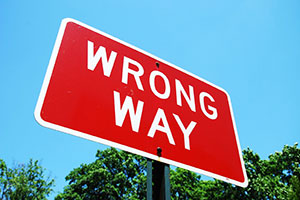
Wrong-way crashes are on a dangerous rise in Massachusetts and across the U.S., according to the AAA Foundation for Traffic Safety.
No one ever wants to hear the phrase “wrong-way crash.” But head-on collisions are frequent and often fatal on Massachusetts highways.
A new traffic analysis reveals the number of wrong-way crashes is rising on divided highways across the U.S. The majority of these auto crashes involve an alcohol-impaired operator. Drivers are exceeding the legal limit in 6 of 10 wrong-way car crashes, according to the AAA Foundation for Traffic Safety.
Drunk driving is the leading cause. Yet researchers say other factors, including a driver’s age and driving without a passenger, contribute. For example, 87 percent of wrong-way drivers travel alone. Passengers can be a resource for drivers, giving them an extra set of eyes to catch potential mistakes.
As for older drivers, those between 75 and 79 drive fewer miles and spend less time driving than younger operators. Still, they are more likely to be involved in a wrong-way crash and states are being urged to review how they identify medically at-risk drivers.
How Many Wrong-Way Crashes Are There in Massachusetts Each Year?
In Massachusetts, MassDOT data shows 150 people have died and more than 4,500 have been injured in wrong-way car accidents since 2010, according to CBSBoston.com. Since 2010, there have been 8,200 wrong-way crashes.
Nationwide, wrong-way accidents caused an average of approximately 500 deaths per year from 2015 – 2018, according to AAA. This represents a 34 percent increase from 2010 – 2014.
According to the CBSBoston.com report, the numbers also climbed in Massachusetts, from 19 to 27 deaths on average annually for the same period, a 78 percent increase.
Worcester recorded 366 wrong-way crashes, more than any other community in Massachusetts, followed by Springfield and Boston.
Wrong-Way Crashes Can Also Happen at Local Intersections
The AAA report focuses on wrong-way crashes on divided highways. Drivers can also make dangerous maneuvers resulting in wrong-way accidents at local intersections. From 2015-2018, the Federal Highway Administration reported roughly 400-450 wrong-way crashes at intersections.
Crashes may not be reported the same way at intersections, which have different traffic conditions, speeds and signage. When there is a wrong-way crash, the driver may be cited for another infraction, such as a marked lanes violation or failure to stop for a traffic signal.
But if you have been seriously injured at an intersection with a “Do Not Enter-Wrong Way” sign, it is in your best interest to consult an experienced car accident attorney who can thoroughly investigate the cause of a collision and your injury. An attorney can help you secure evidence promptly and with every aspect of your claim should you need to seek compensation from an at-fault driver’s insurance policy.
Strengthening Traffic Laws to Reduce Wrong-Way Crashes
The AAA Foundation for Traffic Safety and the National Transportation Safety Board are working to educate drivers about taking safety precautions to avoid wrong-way crashes and head-on traffic crashes. The most fundamental step is not to drink and drive.
The organizations also support passage of safety laws and infrastructure improvements, including more visible traffic signs.
Ignition-interlock laws are part of this effort and all eyes are on Massachusetts. We are the only state which does not require drivers with a first-time OUI conviction to utilize ignition interlocks, which test one’s blood alcohol concentration before they start driving.
However, after years of unsuccessful debate, Massachusetts may finally be moving closer. Last December, Gov. Charlie Baker signed an amendment to the state budget which if passed, will make ignition interlocks mandatory for all drivers convicted of operating under the influence. This could make a meaningful difference in discouraging choices that lead to drunk driving crashes and very serious injuries across Massachusetts.
Tips for Driving Safely on Highways
Do Not Drink and Drive. Never consume alcohol – or marijuana or other drugs – then drive. Use the designated driver system if you plan to go out and consume alcohol. Drivers have the same responsibility when using prescription medications which carry safety warnings about driving. If you have a question, consult your doctor on when and how you should use your medication.
Stay Alert. Do not drive if you are drowsy or fatigued. If you find yourself too tired to drive, stop your vehicle and come up with a short-term plan for getting some rest or grabbing a cup of coffee. There is always an alternative, including Uber or Lyft. Drivers often want just to push through and reach their destination. But if your vision is blurry or you cannot focus, you are driving negligently and putting others in harm’s way.
Drive with a Friend. You can split up the driving responsibilities, which will reduce your fatigue.
Avoid Distracted Driving. Reaching for a cell phone is the cause of many auto accidents. You are not using reasonable care to drive safely if you attempt to make a phone call while traveling through highway traffic, among other cars, SUVs and large trucks.
While Massachusetts has a hands-free driving law and drivers are legally allowed to make phone calls with Bluetooth devices, the safest approach is to still look for a rest stop or exit and safely park your vehicle before using your phone.
Create a Family Support System. Families can support each other in getting home safely. Try to develop a network of friends and loved ones who will support you. Ask them in advance if they would be willing to come pick you up if you ever needed a ride. Be willing to do the same for them.
Help Older Drivers Plan. Be proactive. Take time to discuss transportation options with the older driver in your life. If they drive, help them plan the best times of day to travel and steer them away from the highway. Remind them the importance of having a regular eye exam.
Let them know they have support. Make a schedule for your loved one to get out several times a week with you, other family members, grandchildren or a Council on Aging.
Free Legal Consultation – Call Our Boston Auto Accident Lawyers
With more than 100 years combined experience, Breakstone, White & Gluck specializes in representing those who have suffered serious personal injury or wrongful death due to negligence. We are based at 2 Central Plaza in downtown Boston.
With expertise in Massachusetts insurance laws and traffic accident investigations, our attorneys are here to guide clients through the difficulties you face after a serious accident. For a free legal consultation, contact Breakstone, White & Gluck and our car accident lawyers at 800-379-1244 or 617-723-7676 or use our contact form.
Sharp Rise in Pedestrian Fatality Rate During the First Half of 2020, Despite COVID-19 Restrictions
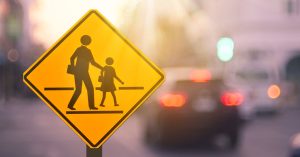 Less traffic did not mean fewer pedestrian accidents in the early months of the pandemic. In fact, preliminary traffic data shows there was roughly the same number of fatal pedestrian accidents in the first half of 2020 compared to the same period of 2019.
Less traffic did not mean fewer pedestrian accidents in the early months of the pandemic. In fact, preliminary traffic data shows there was roughly the same number of fatal pedestrian accidents in the first half of 2020 compared to the same period of 2019.
However, because there were fewer cars out, the Governor’s Highway Safety Association (GHSA) is actually projecting a 20 percent increase in the pedestrian fatality rate per one billion miles traveled, according to the report, “Pedestrian Traffic Fatalities by State: 2020 Preliminary Data.”
According to the data analysis, 2,957 pedestrians were killed in motor vehicle crashes during the first half of 2020. This is 6 more pedestrians than the same period of 2019, when the calculation included more vehicles on the road.
If trends continue, 2020 could end up having a record rate of fatal pedestrian accidents, despite having fewer cars on the road.
How much less traffic? The Federal Highway Work Administration reported a 16.5 percent decrease in traffic on all roads and streets in 2020. Here in Massachusetts, MassDOT reported an immediate 50 percent reduction in traffic volumes in April 2020. Massachusetts traffic volumes were still 20 percent lower than normal in September 2020, according to our past blog on COVID-19 traffic conditions in Massachusetts.
Larger Trend of Pedestrian Fatalities
For years, pedestrian fatalities have been on a dangerous rise in the U.S. Prior to COVID-19, pedestrian traffic fatalities stood at the highest levels since 1990. There was a striking 46 percent increase in these accidents from 2010 to 2019, according to the GHSA. In 2019, pedestrian traffic fatalities accounted for roughly 17 percent of all traffic deaths.
How Many Pedestrian Fatalities Occurred in Massachusetts During COVID-19 in 2020?
In preliminary data, Massachusetts reported 17 pedestrian fatalities in the first half of 2020, compared to 32 from January to June 2019.
Massachusetts was one of 20 states, along with Washington D.C., which reported a decrease in the actual number of pedestrians who were killed in car accidents or crashes involving trucks, SUVs and other vehicles.
In 27 other states, the number of pedestrian fatalities in car accidents and truck crashes increased.
Notably, more than half of all pedestrian fatalities happened in seven of the most populous states, including Arizona, California, Florida, Georgia, New York, North Carolina and Texas.
Contributing Factors in the Rising Number of Pedestrian Fatalities
The GHSA cited several trends in these fatalities, including drivers who sped down open roads simply because there was less traffic.
Distraction and fatigue also contributed to many pedestrian crashes, including when drivers were negligent and failed to stop at an intersection or stay within the marked lane. In Massachusetts, the new hands-free cell phone law took effect in April 2020 but the impact was effectively delayed by Covid-19.
In addition, the report touched on the trend of drivers choosing light trucks and SUVs more often. In 2019, sales of light trucks and SUVs far outpaced passenger vehicles. The larger vehicles accounted for 72 percent of all auto sales.
Pedestrians are still more likely to be injured by a driver in a passenger car. However, over the past 10 years, there has been a 69 percent increase in SUV accidents resulting in pedestrian fatalities.
With larger frames, SUVs have a unique front-end design which is particularly threatening to pedestrians. In a pedestrian SUV crash, the grill can strike a pedestrian’s pelvis or chest at nearly the same time the vehicle’s bumper hits the lower extremities, increasing the force of the impact.
Free Legal Consultation – Boston Pedestrian Accident Attorneys
At Breakstone, White & Gluck, our pedestrian accident lawyers are committed to fighting for the rights of those injured or killed by a driver’s negligence or wrongdoing. We have represented clients after pedestrian accidents in Boston, Cambridge and throughout Massachusetts. Our attorneys have recovered significant awards, including:
- $7.1 million for our client was who hit by an MBTA bus in a South Boston crosswalk
- $2.15 million for the estate of our client who was hit and killed in a parking lot, which was not equipped with pedestrian safety bollards
- $1.375 million for our client who was hit by a speeding MBTA bus in Roxbury
If you or a family member has been injured in a pedestrian crash, learn your legal rights. For a free legal consultation, contact Breakstone, White & Gluck at 800-379-1244 or 617-723-7676 or use our contact form.
Child’s Death on Peloton Treadmill Prompts New Safety Warnings
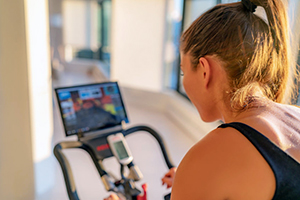
While convenient for parents, at-home treadmills, stationary bikes and fitness equipment can cause children serious injuries.
If you have jumped on the Peloton bandwagon, you are not alone. But many parents are exercising with more caution this week after learning about a child’s tragic death on a Peloton treadmill. Consumers are being urged to keep children away from the fitness equipment, as the Consumer Product Safety Commission (CPSC) investigates.
Peloton Interactive, Inc. became a household name during the 2019 holiday season, with a tongue-in-cheek ad campaign that poked fun at a husband and his “Peloton wife.” Then the pandemic began and Peloton became the fast rising star of the fitness industry. Many rushed to set up a high-end stationary bike or treadmill right at home, then logged into the fun digital app.
Peloton’s CEO announced the child’s death on a Tread+ last week in a letter, revealing the company was also aware of a small handful of other Tread+ accidents involving children. While he cited no injuries in these cases, NBC later reported that another child, a 3-year-old boy, had suffered serious injuries after being found trapped under a Peloton Tread+.
According to SaferProducts.gov, the child’s father had found the boy trapped under a Peloton Tread+ in early February. Initially, he was not breathing and had no pulse. The boy suffered a significant brain injury, along with a neck injury and petechiae on his face, which can occur when one’s blood flow is blocked. Peloton learned about the incident from the CPSC and said the company’s heart went out to the family.
If you or your child has been injured by an unsafe product, you should receive immediate medical care and report your injury promptly to help warn others. You do not have to make a report on your own. Report the incident with guidance from an experienced product liability lawyer at Breakstone, White & Gluck, who can advise you of your legal rights.
Treadmill Injuries
This is a timely investigation and conversation. Many families have purchased fitness equipment to use from the convenience of their homes as they juggle family and work responsibilities under COVID-19 restrictions. As a result, treadmill sales rose over 120 percent between March and October 2020, according to the Washington Post. Stationary bike sales nearly tripled.
Treadmills, though a convenient way to exercise from your home and office, are associated with many fitness equipment injuries. Across the country, emergency rooms treated an estimated 22,500 treadmill-related injuries during 2019, according to the CPSC. Children under 8 suffered about 2,000 injuries. There were 17 fatal injuries on treadmills between 2018 and 2020, including a 5-year-old girl.
Using Treadmills Safely in Your Home
According to Consumer Reports, children ages 1 to 6 suffer the most treadmill injuries of any age. Older siblings can also be injured when they just want to try the equipment and interactive features that look like video games.
Consider that young children are often just learning how to ride their first bike and developing their coordination skills. They are not strong enough to use a heavy, mechanical piece of equipment, not even for just a moment under an adult’s supervision.
Treadmill companies have a duty to warn consumers about the potential harm to children and how to prevent injuries to children. Manufacturers also have to watch how they showcase fitness equipment in ads and commercials. If a consumer sees a bike set up in a living room or family space, this may leave the impression that this is safe near children and families.
You can take steps to protect your children by securing fitness equipment in a separate room, away from your children and pets. Just as important, remove the safety key when you are done using the treadmill and fold it up if possible.
Mechanical Defects and Other Issues with Treadmills
When you buy fitness equipment, you may wonder whether you will enjoy using it or if it will be worth the investment. No one expects to be injured or see their child injured.
Yet there are many defective and unsafe products sold each year. This includes defective equipment which should have never been sold due to defective design or manufacturing error. Injuries can also happen when a manufacturer fails to warn the consumer about unsafe use. Manufacturers have a duty to promptly report when their products cause injury or wrongful death.
Many treadmill injuries can be traced back to poor manufacturing. Consumers have no warning about mechanical problems, such as spinning belts and erratic motors, until they use the machines. As a result, a consumer can lose their stop or fall, first hitting a moving treadmill and suffering head injuries or skin lacerations.
Improper set up can also contribute to injuries. Treadmills should come with instructions on where to safely place the equipment in your home or office. When a user misses a step, they are much more likely to get caught in the tread mat or hit a wall if they do not have adequate space. Read the instructions carefully as treadmills can come in different weights and sizes at times. As a guide, consider the ASTM International treadmill recommendations are to leave at least 6 1/2 feet of free space behind the treadmill. There should be about 1 ½ feet on each side. But your model may have different specifications.
Incomplete or incorrect labeling is another source for fitness equipment injuries. Without proper warning, the consumer cannot make the best decision about whether the product is safe for purchase and use in their home environment.
In addition to larger fitness equipment, be aware of small accessory equipment. Weights, air-filled exercise balls and yoga straps all look simple to use. But these fitness products can be poorly made with cheap materials, making them unsafe for both children and adults.
In one recent case, one of our attorneys led an investigation and negotiations which resulted in a $1.15 million product liability settlement for our client.
Free Legal Consultation – Boston Defective Product Attorneys
Breakstone, White & Gluck of Boston is committed to providing our clients with aggressive and thorough representation. If you or someone in your family has been injured by an unsafe product, contact our product liability lawyers. We serve clients across Massachusetts, including in Boston, Cambridge, Waltham, Framingham, the North and South Shores, Cape Cod, Fall River and Worcester. For a free consultation, call 800-379-1244 or 617-723-7676 or use our contact form.
Breakstone, White & Gluck Donates Bicycle Helmets for a Special Brockton Police Safety Event
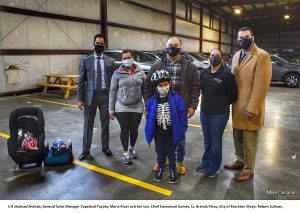 Breakstone, White & Gluck was so pleased to support a family event hosted by the Brockton Police Department and other community partners this past weekend. This was a special event because Brockton Police gave away both free car seats and bicycle helmets to local children and families. The goal was to prevent injuries. Many families struggle to get started with car seats and bicycle helmets and end up using them improperly.
Breakstone, White & Gluck was so pleased to support a family event hosted by the Brockton Police Department and other community partners this past weekend. This was a special event because Brockton Police gave away both free car seats and bicycle helmets to local children and families. The goal was to prevent injuries. Many families struggle to get started with car seats and bicycle helmets and end up using them improperly.
The Brockton Police Department partnered with Copeland Toyota and Buckle Up for Life to give families free car seats. Brockton Police has four officers who are certified child passenger safety technicians. They can speak English, Spanish, Cape Verdean Creole and Hatian Creole. Especially after the pandemic, this event was a good opportunity for parents and caregivers to receive a free car seat, have it installed by a police officer and ask questions.
Breakstone, White & Gluck donated the children’s bicycle helmets from our Project KidSafe campaign. Brockton Police helped the children fit their new helmets.
Photo: From left to right, Shahzad Shahab, general manager of Copeland Toyota, then Maria Rivas and her son wearing a Project KidSafe helmet. Center is Brockton Police Chief Emmaneul Gomes, then Lt. Brenda Perez and Brockton Mayor Robert Sullivan on the right.
Watch for Savings, But Keep Paying Your Massachusetts Auto Insurance Premiums During the Pandemic
 It has been nearly a year since Massachusetts called the COVID-19 state of emergency. Your daily routine has completely changed and you are not driving very often. Do you still need to buy auto insurance at this point?
It has been nearly a year since Massachusetts called the COVID-19 state of emergency. Your daily routine has completely changed and you are not driving very often. Do you still need to buy auto insurance at this point?
Yes. Under state law, you are required to purchase a Massachusetts auto insurance policy if you have a driver’s license and register a vehicle. If you cause a car accident in Massachusetts, you are responsible for compensating anyone you have injured for their medical expenses and other financial losses. You also have to pay for property damage.
Auto insurers granted Massachusetts drivers some discounts last year, but lawmakers and consumer advocates are starting to raise the question of further discounts.
Calls for Action on Reducing Auto Insurance Premiums in Massachusetts
On Feb. 12th, the Lawrence-Eagle Tribune reported state Sen. Barry Finegold, D-Andover, and other legislators have asked the state Division of Insurance to review insurance rates, premiums and losses. They also want insurers to offer refunds from profits.
Attorney General Maura Healey’s office also recently asked regulators to reduce personal automobile insurance premiums by at least 25 percent, according to the newspaper. Her office cited data showing the frequency of liability coverage claims fell more than 50 percent between 2019 and 2020. There was a 70 percent drop in the frequency of collision coverage claims.
Our Massachusetts Auto Insurance Tips During COVID-19
Purchase the Minimum Auto Insurance
Under Massachusetts law, you have to purchase the required minimum coverage limits. There has been no change to the coverage limits during COVID-19.
- Bodily Injury to Others, $20,000 per person; $40,000 per accident
- Personal Injury Protection (PIP), $8,000 per person, per accident
- Bodily Injury Caused by an Uninsured Auto, $20,000 per person; $40,000 per accident
- Damage to Someone Else’s Property, $5,000 per accident
These are low coverage limits. In most cases, drivers should purchase more to adequately protect themselves and others if they cause a car accident. The key with auto insurance is you must purchase the right amounts and coverage types to protect yourself. Learn more about the different coverages in our article, “Understanding and Buying Massachusetts Car Accident Insurance.”
How Auto Insurance Protects You
Right now, you may be asking why you need to buy an auto insurance policy at all. This is a good time to remind you of all the ways your policy can work for you. Most drivers can appreciate that they are required to purchase auto insurance under Massachusetts law. At the very least, under M.G.L. c. 90, § 34J, you may face a fine between $500 to $5,000 if you are caught operating without insurance. Most drivers can also appreciate that auto insurance can protect them financially if they make a mistake and cause someone injury in a car crash.
But there are other protections. First, you may need your auto insurance to protect yourself. Even if another driver was at fault in a car crash, you may have to file a claim with your own policy for your medical expenses and lost wages. This would be true if you were injured by an uninsured or underinsured driver. This would also be the case if you were injured in a hit-and-run accident and could not identify the driver.
If you are a cyclist, you may be entitled to pursue a claim against another driver for your injuries in a bicycle accident. However, having your own auto insurance policy can provide necessary resources to help you recover, especially if the driver does not have auto insurance.
Another benefit is auto insurance can protect our loved ones or those living in our household. Call your insurance agent and ask to add these licensed drivers to your policy. They may be able to draw on the coverage should they ever be injured in a car crash or a bicycle accident and not have coverage elsewhere.
Keep Massachusetts Auto Insurance Payments Current
It is fine to evaluate your auto insurance. But do not withhold or miss an auto insurance premium payment or you could risk your insurer cancelling your policy. If you are facing financial hardship, one option is you can set up a payment plan over the year. In doing so, you may be losing a pre-payment discount, but it may be the best approach for your situation right now.
Before you call your insurer or insurance agent, learn as much as you can. Read the state advisory on Motor Vehicle Insurance Installment Payment Plans.
Seek Quotes from Massachusetts Insurance Agents
In Massachusetts, you can purchase insurance directly through an insurer or an insurance agent. Call and ask if you qualify for any discounts based on your current driving routine, vehicle, employer or group memberships. At a minimum, insurers should offer a discount for traveling more than 5,000 miles in a year.
It is usually worth requesting quotes from more than one insurance agent or companies. In Massachusetts, some insurance agents can offer quotes from multiple companies. Expect most to represent just a single company. Here is the state of Massachusetts insurance agent database.
Check for Discounts and Savings
The best types of discounts and savings are those you achieve just by checking in with your auto insurance agent. For instance, you may be eligible for a discount because you logged fewer than 5,000 miles on your car in 2020.
In some cases, this conversation may not result in savings. You may need to add someone to your household policy or purchase business coverage because you started using your vehicle for work. Whatever your situation, you have a responsibility to keep your auto insurer updated so you have proper coverage should you need it. Many people put their auto insurance coverage at risk without even realizing it when they move and start garaging their vehicle in a new location. Your auto insurance is calculated in part based on where you garage your vehicle. College students who take their vehicles to campus also need to update auto insurers.
Where to Learn More About Massachusetts Auto Insurance
We mentioned a few of our auto insurance articles in this blog. We also invite you to read our other auto insurance articles, including “What Every Massachusetts Bicyclist Needs to Know About Car Insurance” and “Massachusetts Motorcyclists: Buy the Right Types of Auto Insurance to Protect Yourself and Your Finances.”
Free Legal Consultation – Boston Car Accident Attorney
At Breakstone, White & Gluck, our Boston car accident lawyers are known for our commitment to pursuing the best financial result for clients. If you have been injured by someone else’s negligent driving, you may be entitled to seek compensation for your injuries. We represent clients throughout Massachusetts, including in Boston, Quincy, Cambridge, Somerville, Everett, Brookline and Arlington.
For a free legal consultation, contact our attorneys at 800-379-1244 or 617-723-7676 or use our contact form.
Property Owners Have a Responsibility to Shovel in Massachusetts
 After our first nor’easter of the season, much of Massachusetts is now covered in a cold sheet of snow and ice. A total of 12.5 inches fell last weekend in part of Worcester County, while Middlesex County saw 2 to 7 inches of accumulation, according to MassLive.
After our first nor’easter of the season, much of Massachusetts is now covered in a cold sheet of snow and ice. A total of 12.5 inches fell last weekend in part of Worcester County, while Middlesex County saw 2 to 7 inches of accumulation, according to MassLive.
You may have shoveled, yet the work isn’t over. In these harsh New England winters, property owners must remember their legal responsibility to use reasonable care to keep their property safe. If you neglect to remove snow and ice from your driveway, someone could be injured and you could be held financially liable.
Commit to inspecting your property daily after a snow storm. Insect your driveway, walkways, roof and gutters. Go outside and walk from your front door to the end of your driveway and back. This is how your guests, mail carriers and package delivery professionals approach your home. This route needs to be safe.
A Property Owner’s Responsibility in Massachusetts
In Massachusetts, property owners have a duty to use reasonable care in clearing snow and ice so no one is injured. Papadopoulos v. Target Corp., 457 Mass. 368 (2010).
Papadopoulos v. Target Corp. changed more than 100 years of common law in Massachusetts and abolished the distinction between “natural” and “unnatural” snow and ice accumulations in premises liability actions. Property owners now have a duty to use the same reasonable care in treating snow and ice as they do other property hazards. It does not matter how the snow and ice accumulated. They owe a duty to all lawful visitors to use reasonable care to maintain their property in a reasonably safe condition.
How Often Should I Check My Driveway?
The best way to prevent a snow and ice injury is to treat snow regularly and promptly in the hours after a snowstorm, then also throughout the winter. This includes your driveway and walkways, as well as areas where cars, pedestrians and delivery trucks come in and out of the driveway. This activity can cause melting and refreezing for weeks after a storm.
Be aware of freezing and melting on other areas of your property as well, such as under roofs and gutters. Pay the most attention to your front step so delivery services and guests can safely access.
What if a Snow Plow Throws Snow on My Driveway?
It is still your responsibility to remove snow pushed onto your property so no one is injured. There is nothing more frustrating than shoveling your driveway, only for the plow to come back around a few minutes later. Again, the most effective response is to act quickly. Snow will be easier to shovel before it freezes to your driveway.
What If I Am Injured on Someone Else’s Property?
Use caution whenever you visit friends and family during the snow season. Try to find out if they have shoveled and salted their driveway and walkway before you visit. If you arrive and their driveway is iced over, consider visiting another time.
What if I am Injured on a Business Property?
Grocery stores and other businesses also have a responsibility to clear snow and ice and keep parking lots and other areas safe for travel after a snow storm. But there are times when snow and ice is left to accumulate or is not fully cleared. There are often several parties involved in commercial lease agreements, including a landlord, tenant and property management company. These parties may not always properly communicate or the party in charge of snow removal may be trying to save money. The party in charge may also not be experienced in hiring snow removal companies or realize the work involved.
When a business is negligent in clearing snow, slip and fall accidents can happen in parking lots. Another hazard is store floors and entrances. When snow melts, water accumulates and someone could slip and fall. A third danger is icy railings. Those in charge of the property have a responsibility to regularly inspect and remove snow and ice from railings, so a visitor doesn’t unknowingly reach for one and fall.
Since businesses can be open extended hours, property owners have a responsibility to address snow and ice accumulation promptly.
Be Aware of High Risk Areas for Mail Carriers and Package Delivery Professionals
Walk to the end of your driveway and make sure mail carriers and package delivery professionals can safely reach your front steps or mailbox.
Help the Elderly in Snow and Ice
The elderly are the most vulnerable to snow and ice injuries. If they fall, they are more likely to suffer long-term injuries. You can be proactive and prevent an injury by asking elderly friends, neighbors and family members if they need any help or anything at the grocery store. Encourage them to stay inside in the hours after a snow storm.
After a Snow and Ice Accident
If you are injured by a snow and ice accident, a doctor should evaluate you to determine if you fractured bones or suffered a concussion or other injuries.
If you were seriously injured, contact a lawyer and learn your legal rights. Contact a lawyer promptly. Under Massachusetts law, there is a limited time to notify a private property owner about injuries in cases involving snow and ice.
Free Legal Consultation – Boston Snow and Ice Accident Lawyer
With 100+ years combined experience, Breakstone, White & Gluck has been consistently recognized as a top-rated Boston personal injury law firm. Our attorneys have been recognized by Top 100 New England Super Lawyers, Top 100 Massachusetts Super Lawyers and Massachusetts Super Lawyers, in the specialties of personal injury and medical malpractice. The firm has also been recognized by U.S. News – Best Law Firms with Tier 1 rankings in personal injury and medical malpractice.
For a free legal consultation, contact Breakstone, White & Gluck at 800-379-1244 or 617-723-7676. You can also use our contact form.
How to Avoid Buying a Recalled Toy or Product This Holiday Season
 When a product is recalled, you may expect it will be removed from store shelves or online marketplaces. This is not always a safe assumption. In this year’s Trouble in Toyland report, U.S. PIRG reports several toys which were recalled this year were still being sold afterward on popular websites. Last year, a Wall Street Journal investigation found Amazon was selling thousands of unsafe or banned products.
When a product is recalled, you may expect it will be removed from store shelves or online marketplaces. This is not always a safe assumption. In this year’s Trouble in Toyland report, U.S. PIRG reports several toys which were recalled this year were still being sold afterward on popular websites. Last year, a Wall Street Journal investigation found Amazon was selling thousands of unsafe or banned products.
These are upsetting headlines. The Consumer Product Safety Commission (CPSC) recalls toys when they pose a safety hazard to children. Recalls are typically only called after a report or several reports of injuries or near injuries.
Once a toy is recalled, consider it unsafe to use. Our Boston product liability lawyers share our safety tips for steering clear of unsafe toys this holiday season:
Look Up Past Toy Recalls
Visit the CPSC website and review product recalls for 2020. According to U.S. PIRG, 10 products were recalled in the 12 months between the release of its 2019 and 2020 report.
You can visit this website after you have selected a toy and before you make a purchase. Or it may be helpful to start your holiday shopping there. Search for “toy recalls” or look through all the product recalls. Note that this website does not include automobile recalls. You can find these on the National Highway Traffic Safety Administration (NHTSA) website.
Beware of Amazon, Ebay and Marketplace Websites
Some retailers only offer their own products online. Others – such as Amazon and Ebay – are marketplaces where different vendors sell products and toys. These products may be new or they may be used.
Both the sellers and websites have a responsibility to make sure they are not selling recalled products.
In August 2019, the Wall Street Journal reported that Amazon was selling more than 4,000 items which federal agencies had declared unsafe or banned. Others had misleading labeling. At least 2,000 listings were for unsafe toys and medications.
The story showed the challenges Amazon has regulating its own marketplace. If you shop on Amazon or EBay, look for information about the seller. Is a company the seller or an individual? If you have never heard of the seller, you may not want to make a purchase.
Watch for Small Parts
When buying online, one potential danger is buying a toy which contains small parts. To protect your children, always read age recommendations and look for warning labels.
Toys which are designed for children under age 3 should be labeled if they contain small parts. Toys for children age 3 to 6 must also be labeled if they contain small parts. Read our blog on identifying small parts and toy safety warnings.
Beware of Purchasing Toys on Social Media Sites
You may have heard of Facebook Marketplace or other social media sites where you can sell used toys and products. Avoid buying used toys for children here during the holidays. We also suggest you avoid buying toys from these sites during other seasons, but especially during the holidays when many of us just wait for online sales to pop up.
There is no quality control. In most cases, the product is no longer in the packaging so you can’t read the safety warnings and age recommendations.
If you buy a used product this way, you really have no way of knowing when it was purchased. You may not have a product number or product instructions.
Children’s products, such as cribs, car seats and strollers, may carry the greatest risks. These products are frequently recalled and many model types look similar. While it is illegal to sell recalled products, it happens.
One frightening story came after Fisher Price and Kids II issued their crib recalls in early 2019. Despite this, 1 in 10 daycares was still using a Fisher Price Rock n’ Play sleeper in August 2019. In Nov. 2019, Consumer Reports reported found hundreds of the recalled sleepers available online, on sites such as Craigslist and Facebook Marketplace. In addition, Consumer Reports warned other products – including Ikea dressers recalled in 2016 were still being sold.
Free Legal Consultation – Boston Toy Safety Lawyers
With more than 100 years combined experience, Breakstone, White & Gluck of Boston specializes in the representation of clients injured by unsafe or defective toys and products. We are writing about toy safety this holiday season to help parents and families make safe shopping decisions. Read our past toy safety blogs.
For a free legal consultation, contact the Boston toy safety lawyers at Breakstone, White & Gluck at 800-379-1244 or 617-723-7676. You can also use our contact form.
Breakstone, White & Gluck Receives Tier 1 Rankings for Personal Injury and Medical Malpractice in U.S. News 2021 “Best Law Firms” Awards
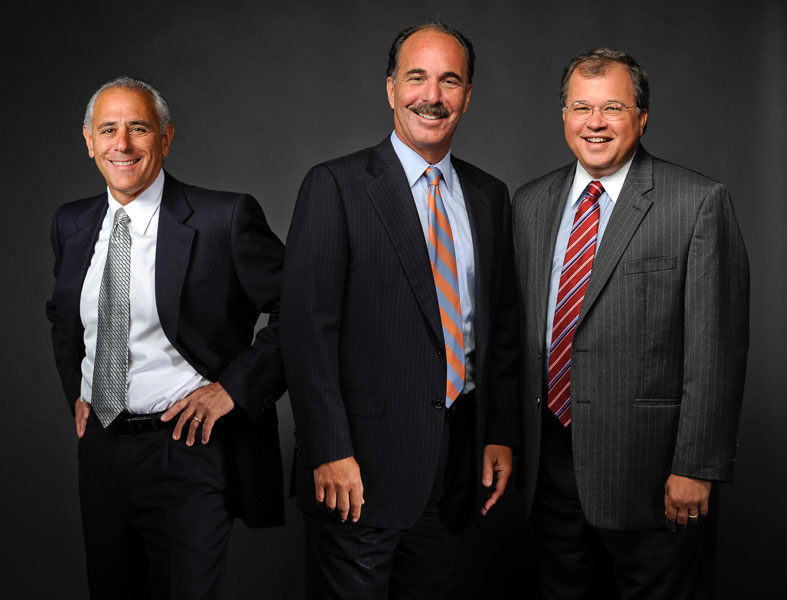
From left to right, our partners: Ronald E. Gluck, Marc L. Breakstone and David W. White. Breakstone, White & Gluck recently received two tier 1 rankings in the U.S. News “Best Law Firms” rankings. Our three partners were recognized this year individually in the annual Best Lawyers rankings in August. Our associate, Reza Breakstone, was also recognized in the Best Lawyers: Ones to Watch list.
It is our pleasure to announce that Breakstone, White & Gluck of Boston has received two Tier 1 rankings from the U.S. News – Best Lawyers® 2021 edition of “Best Law Firms.” The firm received a Tier 1 ranking in the specialty of personal injury litigation for plaintiffs in Boston. The firm also received a Tier 1 ranking in medical malpractice law for plaintiffs in Boston.
U.S. News & World Report and Best Lawyers compiles the “Best Law Firms” rankings annually to recognize firms for professional excellence and consistently impressive ratings from clients and peers. A firm must have at least one attorney recognized on The Best Lawyers of America list to be eligible for a “Best Law Firms” ranking. All three of our partners – Marc L. Breakstone, David W. White and Ronald E. Gluck – have been individually recognized, including by the 26th edition of The Best Lawyers in America, which was announced in August 2020.
Firms are recognized based on a rigorous evaluation process, including a collection of client and lawyer evaluations, peer reviews from leading attorneys in a field and review of additional information law firms submit may submit for consideration. Awards are given in 75 national practice areas and 127 metropolitan practice areas.
Recognized firms received a tier 1, tier 2 or tier 3 rating. Breakstone, White & Gluck received Tier 1 rankings in personal injury and medical malpractice and these reflect the highest level of respect a firm can earn among other leading leaders and clients in local communities and practice areas.
Attorney Marc L. Breakstone was recognized by Best Lawyers in August in medical malpractice law – plaintiffs, personal injury litigation – plaintiffs and professional malpractice law – plaintiffs.
Attorney David W. White was recognized by Best Lawyers in personal injury – personal injury litigation – plaintiffs, insurance law and medical malpractice law – plaintiffs.
Attorney Ronald E. Gluck was recognized by Best Lawyers in personal injury litigation – plaintiffs.
Attorney Reza Breakstone was recognized by Best Lawyers in America: Ones to Watch (2021) in medical malpractice law – plaintiffs.
More Recognition for Breakstone, White & Gluck
Breakstone, White & Gluck of Boston offers our clients more than 100 years combined experience in the handling of personal injury and medical malpractice cases. We are proud of our consistently strong results and to have achieved a high level of satisfaction from our clients. We invite you to read some of our client reviews or our case results in the areas of personal injury, medical malpractice and car accidents.
Breakstone, White & Gluck been consistently recognized for our attorneys’ results for clients. Best Lawyers and Best Law Firms have mentioned our firm name in at least one practice area each year since 2011.
In addition, for the 17th year, our lawyers were recently selected to the annual Massachusetts Super Lawyers lists, as top rated Boston personal injury and medical malpractice lawyers. Breakstone, White & Gluck also earned a spot on the Top 100 Massachusetts Super Lawyers list and has received past rankings on Top 100 New England Super Lawyers. The Top 100 lists are notable because they draw from attorneys across all practice areas, not just our firm’s specialties.
Our attorneys also maintain an AV rating – the highest rating for legal abilities and professional standards from Martindale-Hubbell.
Free Legal Consultation – Boston Personal Injury Lawyers
If you have been injured by someone else’s negligence or wrongdoing, learn your legal rights. For a free legal consultation, contact our attorneys at 800-379-1244 or 617-723-7676. You can also use our contact form.
Discouraging Underage Drinking and Driving Accidents in Massachusetts
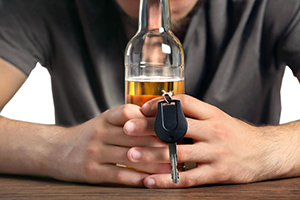
Teens are more likely to be killed in an alcohol-related crash than anyone else on the roads, according to the CDC.
Teen Driver Safety Week is Oct. 18-24, 2020. Breakstone, White & Gluck is sharing articles to encourage parents and teens to collaborate and discuss safe driving decisions.
As every parent well knows, it is not easy to talk to your teen about safe driving decisions. You may talk, while your teen just looks at your car keys. Despite the challenges, we encourage you to be patient and stay the course in these conversations, especially when it comes to discouraging drinking and driving.
Talk to your teen about their responsibilities. In Massachusetts, teens who are between 16 ½ and 18 are eligible for a junior operator’s license. Teens face special restrictions, such as they cannot carry friends who are under 18 without supervision for the first six months of driving. They are also banned from driving between midnight and 5 a.m. Like all drivers, junior operators are not allowed to drive under the influence of alcohol or drugs under any circumstances. They can face criminal penalties for operating to endanger/recklessly or while negligent. But the greatest danger is teens who operate while impaired are more likely to cause a drunk driving accident due to their impairment and poor choice.
We are writing about this because teens are more likely to avoid drinking and driving when they make the decision in advance, with a parent’s support, not to drink until they are 21.
Teach teens to respect the legal drinking age. In Massachusetts, you must be at least 21 years old to legally consume alcohol. Make sure your teen knows you expect them not to drink until they reach the legal age. Let them know they can talk to you or another family member if they face pressure to drink or someone offers them alcohol.
Be honest about why you want your teen to avoid alcohol. Explain that you want them to live the best life they can. As a teen, they are still developing physically, cognitively, socially and emotionally. As this happens, teens are still developing their values and their compass for making good decisions.
Consider this: those age 12 to 20 consume 11 percent of all alcohol in the United States, according to the Centers for Disease Control and Prevention (CDC). Because of their inexperience, teens are more likely to consume more drinks than an adult drinker.
Risk for injuries when teens drink and drive. Teens are more likely to be killed in an alcohol-related crash than anyone else on the roads, according to the CDC. In 2016, 1 out of 5 teens involved in fatal car crashes had been drinking.
Teens can put themselves at risk when they drive drunk, but another danger is when they travel with friends who have consumed alcohol. According to the 2017 National Youth Risk Behavior Survey, 16.5 percent of high school students had traveled with a driver who had consumed alcohol in the previous month. This is a revealing number, but it gets worse.
Unfortunately, drinking and driving just paves the way for other poor decisions. According to the CDC, nearly 60 percent of the drivers age 15-20 who were killed in car crashes after drinking and driving weren’t wearing seat belts. Nearly a third of all male drivers in this age group were speeding when they crashed and 20 percent had been drinking and driving.
A teen who consumes alcohol, then causes a car accident resulting in injury may face criminal consequences. Parents can also be held liable for personal injuries if the victim pursues a claim against your car insurance policy or a civil lawsuit. For a teen, the experience of injuring another person is hard to recover from. It’s incredibly more painful when they were being reckless, such as operating under the influence of alcohol.
What you can offer your teen is support and guidance. Look for a teen-parent driving contract online for help. Review the agreement with your teen and make sure they know that you will always come pick them up if they need a ride. Also let them know that driving mistakes and accidents do happen. But you can’t support unsafe choices like drinking and driving, which endangers them and others on the road.
Other negative effects of teen drinking. The consequences of underage drinking are very real, even beyond driving. Teens who engage in underage drinking are more likely to suffer from social problems, such as high absentee rates and failing grades, face legal problems such as arrest and experience physical fatigue and hangovers, according to the CDC. They are also more likely to become the victim of a physical or sexual assault. There can also be a long term impact on their physical development.
Tell your child what every adult knows: delaying that first drink can make life’s hard experiences a little more manageable. Make sure they know you are proud of them and that they should feel good about their decision.
Never provide alcohol to your teens. On the same note, it is illegal to provide alcohol to your teen and their friends. If you allow your teen or others to drink in your home and someone is injured as a result, you could face criminal arrest and even jail time under Massachusetts social host liability laws. There are many stories of parents who have allowed this or even supplied the alcohol. Sometimes, parents have thought it is better to keep teens close if they are going to drink. But this is a dangerous thought and you could end up financially responsible for a very painful situation.
Likewise, make sure you know where your teen is going and with whom. It doesn’t help your teen to spend time at a friend’s home where alcohol is readily available or where their parents or older siblings are frequently drinking in the home.
Free Legal Consultation – Boston Car Accident Attorneys
At Breakstone, White & Gluck, our lawyers provide aggressive and thorough representation to those injured by the negligence of other drivers across Massachusetts. If you have been injured, learn your legal rights. For a free legal consultation, contact our Boston car accident lawyers at 800-379-1244 or 617-723-7676 or use our contact form.
To learn more about our Project KidSafe campaign and our National Teen Driving Safety Week articles, visit www.bwglaw.com/project-kidsafe.



